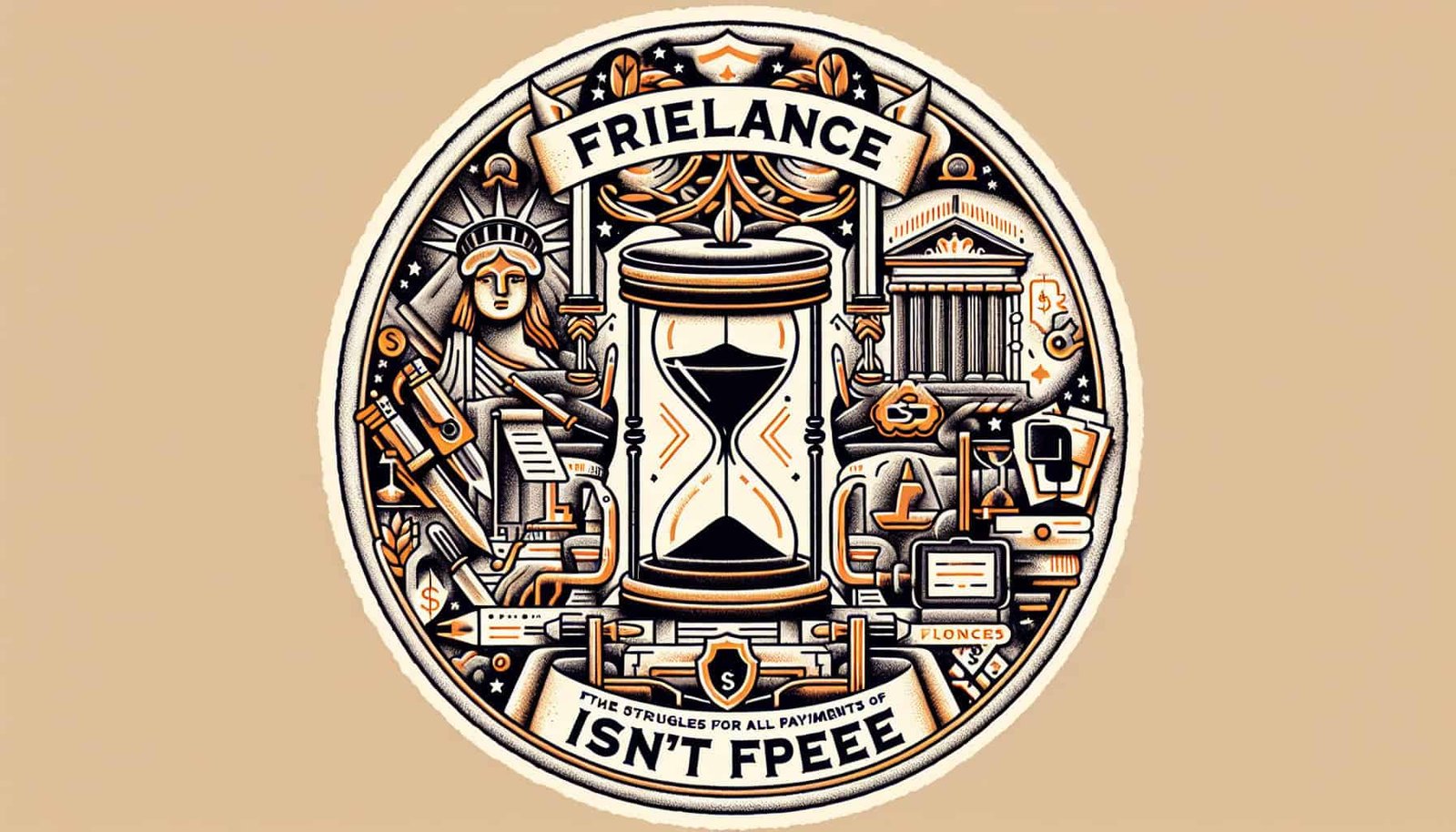In recent years, the gig economy has experienced a significant surge, with millions of Americans turning to freelancing as a way to earn a living. However, with this rise in freelance work comes the need for better protection and fair treatment for freelancers. That’s where the “Freelance Isn’t Free” law in New York State comes into play. This law, which has been recently enacted, aims to provide freelancers with the necessary safeguards to ensure they are paid on time and in full for their work. With this new legislation, freelancers can now feel more secure in their profession and have greater confidence in their ability to be compensated fairly for their services.

Overview of Freelance Isn’t Free Law
The Freelance Isn’t Free Law is a legislation that aims to protect the rights and interests of freelance workers in New York City. Through its key provisions, the law ensures that freelancers are given fair treatment and timely compensation for their work. Implemented and enforced by the New York State Department of Labor, the law has had a significant impact on the freelance industry and has improved the overall working conditions for freelancers.
Purpose of Freelance Isn’t Free Law
The primary purpose of the Freelance Isn’t Free Law is to address the challenges and issues faced by freelance workers in receiving timely payments for their work. Many freelancers struggled with nonpayment or delayed payment, which caused financial hardships and uncertainty. The law seeks to provide freelancers with increased protection and security, promote more transparent payment practices, and prevent retaliation from clients or employers.
Key Provisions of the Law
The Freelance Isn’t Free Law encompasses several key provisions that are designed to safeguard the rights of freelance workers. These provisions include the requirement for written contracts, payment deadlines, the ability to file nonpayment claims, the prohibition of retaliation, and penalties for noncompliance. Each provision plays a crucial role in ensuring fair treatment for freelancers and promoting a more equitable working environment.
Implementation and Enforcement
The New York State Department of Labor is responsible for the implementation and enforcement of the Freelance Isn’t Free Law. Freelancers who encounter issues with nonpayment or other violations of the law can file a complaint with the department. The department then investigates the claim, works towards resolving any disputes, and determines appropriate remedies and penalties for noncompliant clients or employers.

Impact on Freelance Workers
The Freelance Isn’t Free Law has had a significant impact on freelance workers in New York City. The law has provided increased protection and security for freelancers, ensuring that they are not taken advantage of or left unpaid for their work. The implementation of the law has resulted in improved payment practices, a reduction in nonpayment incidents, and a decrease in financial losses for freelancers. Additionally, the law has enhanced trust and professionalism within the freelance industry.
Background and History
Freelance workers have faced numerous challenges in the past, particularly in terms of receiving timely payments for their work. These challenges have resulted in financial difficulties and instability for many freelancers. In response to these issues, the Freelance Isn’t Free Law was introduced to address the concerns raised by freelance workers and provide them with the necessary protections.
The law passed through the New York State Legislature with the support of various advocacy organizations and freelance workers. It received bipartisan support and was signed into law by the Governor to ensure that freelance workers are treated fairly and have greater job security.

Compliance Challenges for Employers and Clients
The implementation of the Freelance Isn’t Free Law has presented some compliance challenges for employers and clients. These challenges include adjustments to payment practices, ensuring compliance with contractual obligations, meeting record-keeping requirements, and preventing retaliation against freelancers who assert their rights under the law. However, these challenges can be overcome through proper education and awareness of the law’s provisions.
Success and Effectiveness of the Law
The Freelance Isn’t Free Law has been successful in improving the working conditions and rights of freelance workers. Case studies and testimonials from freelancers have demonstrated the positive impact of the law, with reduced incidents of nonpayment and increased overall payment compliance. The law’s success has broader implications for the rights of freelance workers across different industries and jurisdictions.

Comparison with Freelancer Laws in Other States
While the Freelance Isn’t Free Law is specific to New York City, similar provisions exist in other states to protect the rights of freelance workers. However, there may be variations and differences in the level of protections provided by these laws. Lessons can be learned from other jurisdictions to further strengthen and expand the rights and safeguards for freelance workers.
Advocacy and Support for Freelancers
Freelance advocacy organizations play a crucial role in supporting and advocating for the rights of freelance workers. These organizations provide resources and assistance to freelance workers, offer educational initiatives and workshops, and work towards promoting fair and equitable working conditions for freelancers.

Future Developments and Potential Reforms
In the future, the Freelance Isn’t Free Law may be expanded to provide additional protections and benefits for freelance workers. National implementation of similar laws in other states would also be a significant step towards ensuring consistency and fairness across the freelance industry. However, ongoing challenges in the freelancing sector, such as client compliance and payment practices, still need to be addressed through potential reforms and continued advocacy efforts.

